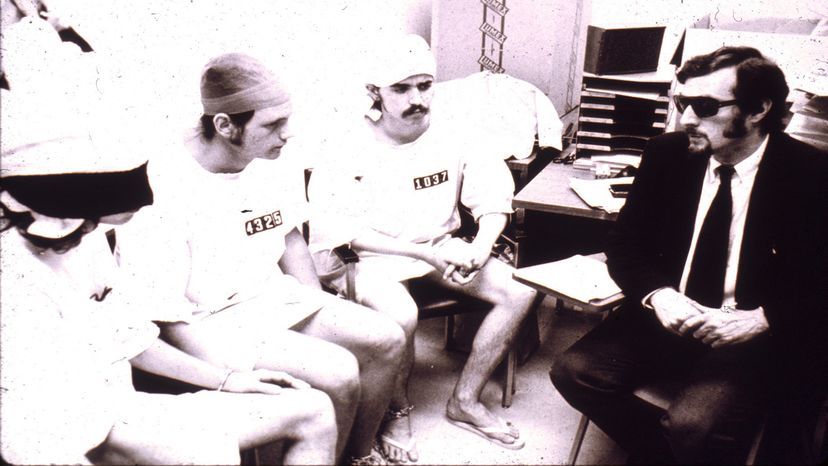Zimbardo's Mistakes

While the experiment was still happening, Zimbardo realized that he made several serious mistakes in designing and running it. One mistake was his taking on the role of prison superintendent. Instead of simply observing from a neutral location or reviewing the data later, Zimbardo made himself an authority figure, which meant he was part of the experiment. Not only did this affect the behavior of the guards, but it also affected his own behavior. He became enmeshed in the role-playing scenario just as much as the guards and prisoners, making several decisions detrimental to running an experiment. In one instance, he responded to a rumor of a planned breakout by sending in an experiment confederate to act as an informant, contacting local police for help, then relocating the entire prison to another floor temporarily, only to find out the plan was a rumor.
Zimbardo's other major mistake was in not using a control group, so he could study a specific variable or set of variables in the prison. If you want to see what happens when you expose tomatoes to radiation, you also need a group that you expose to no radiation so you can measure the difference. Zimbardo didn't do this. He created an elaborate role-playing scenario, but there was no control prison with different rules or conditions to measure his results against. During the experiment, one of his old roommates visited the prison and asked what the independent variable was (the variable that differed between the control group and the experimental group) [source: Stanford Prison Experiment]. Zimbardo didn't realize until later what an important question this was.
Advertisement
It wasn't until Christina Maslach, a Stanford graduate and Zimbardo's girlfriend at the time, expressed moral outrage at the conditions in the prison and Zimbardo's behavior that he realized that the experiment had spun out of control. He ended it the next day.
But Zimbardo had made another serious error: He wanted to create a neutral prison with so-called average participants. He failed to some extent, and the reasons have serious implications in social science experiments.